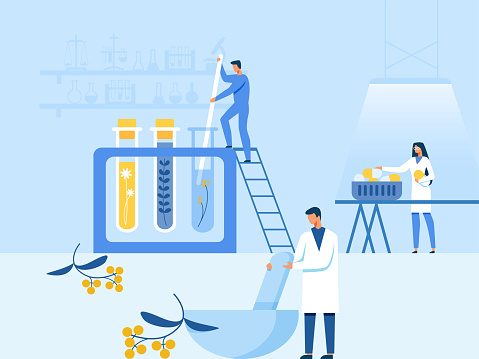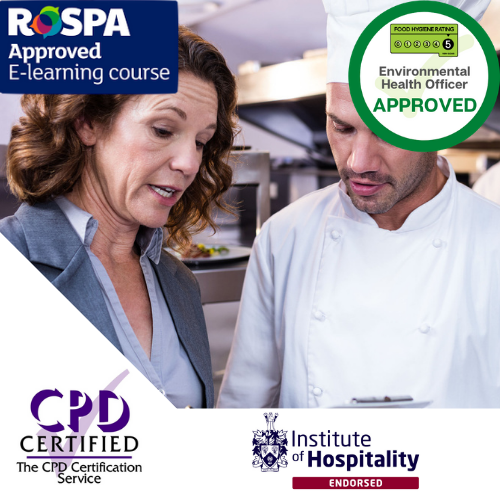Are you looking to advance your career in food safety? Achieving a HACCP training certification is a great way to do just that. Understanding the different levels in training HACCP certification and the advantages each provides helps you decide which one is best. In this blog post, we discuss the various levels of training in HACCP certification and how they can boost a career in food safety.
The different levels of HACCP Training
There are four different levels of HACCP certification that you can obtain to further your career in food safety. Each level has its own set of requirements and qualifications that must be met in order to obtain certification. These levels are offered by various institutes and courses that specialize in food safety.
HACCP Level 1
HACCP Level 1 is the introductory level of HACCP certification. This level is for individuals who are new to the food industry or those who have limited experience with food safety management. At this level, you will learn the basic principles of HACCP. Gain an understanding of the importance of implementing HACCP practices in food production.
HACCP Level 2
This is the intermediate level of HACCP certification. There are levels for individuals who have some experience in the food industry and have completed HACCP Level 1 certification. At this level, you will learn about more complex HACCP systems and how to implement them in your workplace.
HACCP Level 3
HACCP Level 3 is the advanced level of HACCP certification. This level is for professionals who have extensive experience in the food industry and have completed Level 2 certification. At this level, you will learn about advanced HACCP systems. Gain knowledge on how to train others in HACCP implementation.
HACCP Level 4
HACCP Level 4 is the highest level of HACCP certification. This level is designed for individuals who have already obtained HACCP Level 3 certification and are seeking to become certified as HACCP auditors. At this level, you will learn about auditing HACCP systems and gain experience in conducting HACCP audits.
There are various institutes and courses that offer HACCP certification at different levels.
Before choosing a certification program, it is important to determine which level is right for you based on your experience and career goals.
Which level is right for you?
Choosing the right level of HACCP certification depends on your current level of experience in the food industry. Each level of HACCP certification builds on the knowledge and skills of the previous level, so it’s important to have a strong foundation before moving on to the next level.
If you’re just starting out in the food industry, it’s recommended to start with Level 1, which covers the basics of HACCP principles and their application. This level is ideal for individuals who have limited experience in food safety or are just beginning their careers in this field.
For those with some experience in food safety, Level 2 certification may be the best option. This level goes into more detail on the specific hazards that can occur in the food industry and how to prevent them. It also covers monitoring, corrective action, verification, and documentation.
Level 3 certification is designed for individuals who have already achieved Levels 1 and 2, and have significant experience in food safety. This level focuses on developing, implementing, and maintaining a HACCP plan, as well as advanced topics such as crisis management and communication.
It’s important to note that the requirements for each level of HACCP certification may vary depending on the certifying authority or organization. Be sure to check the specific requirements for the certification you’re interested in.
HACCP Training Organization
Some several international organizations and authorities provide HACCP certification courses. Some of the most popular ones include the
- International HACCP Alliance,
- the British Retail Consortium,
- Safe Quality Food Institute
- American National Standards Institute.
- Highfield Qualifications
It is important to note that the validity of the HACCP certification can vary depending on the certifying authority or organization. Some certifications may be recognized globally, while others may only be recognized within certain countries or regions.
When choosing a HACCP certification course, it is important to consider the reputation of the certifying authority or organization. Look for organizations that have a good track record of providing quality training and certification programs.
Some of the best institutes for HACCP certification include the
- Food Safety and Standards Authority of India (FSSAI)
- National Registry of Food Safety Professionals
- National Environmental Health Association
Preparation for the HACCP certification exam typically involves completing a training course, followed by an exam. A person can complete a training course online or in person and usually covers topics such as HACCP principles, hazard analysis, and critical control points.
Overall, becoming HACCP certified can be a valuable way to boost your career in food safety. By choosing a reputable certifying authority or organization, completing a quality training course, and passing the certification exam, you can demonstrate your expertise and commitment to ensuring food safety.
Conclusion
Obtaining HACCP certification can have many benefits for your career in food safety, including increased job opportunities and higher salaries. When considering certification, be sure to research the certifying authority or organization to ensure that their certification program is reputable and widely recognized in the industry.












